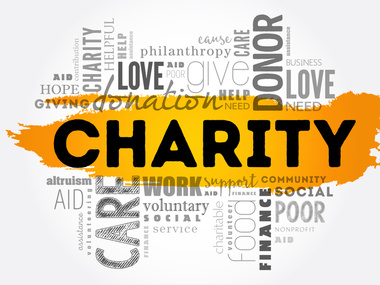Before you open your checkbook, volunteer your time or even open that mail from another charity, you need to clarify your values:
- What’s important to you? Your neighborhood? Region? The nation? The globe?
- Do you want to support a large or small charity, a new or old one?

Your next step is to find charities that meet your criteria: Check the description on their websites or in their literature. How else should you evaluate charities?
Check a Charity’s Legitimacy
Here’s a checklist:
- If it’s a nonprofit, does the IRS recognize the organization as tax exempt? Ask to see a letter of determination.
- If it’s faith-based, ask to see its official listing in a directory for its denomination.
- Get the cold, hard facts. A reputable organization will define its mission and programs clearly, have measurable goals and set concrete criteria to describe achievements.
- Compare apples with apples—compare charities that do the same kind of work, especially when delving into their finances. The work affects operating costs.
- Avoid charities that won’t share information with you or try to pressure you. Reputable nonprofits will discuss their programs and finances. They should be willing to send you literature about their work or direct you to a website. And they will take no for an answer.
- Trust your instincts—don’t contribute if you have doubts.
Get Smart on Taxes
Now for the hard part—can you deduct your giving come next year’s taxes? As you know, the tax overhaul makes the standard deduction much larger, so far fewer filers will choose to itemize, eliminating one incentive for deductions. Your itemized deductions will have to be greater than the new standard deduction for you to benefit from listing deductions separately. To get a tax break from your charitable donations, you can:
- Bunch donations every few years to surmount the higher standard deduction. You will itemize every other year, claiming the standard deduction in years you don’t donate.
- Consider so-called donor-advised funds—this will enable you to bunch smaller gifts into one large amount and take a deduction in the year you’re gifting. You can designate charities as recipients later. The assets can be invested and grow tax-free, but the accounts have fees.
- If you’re 70 1/2 or older, you can benefit from contributing up to $100,000 of IRA assets directly to one or more charities.
Get Smart on Research
There’s a lot to think about to make sure you get the most bang for your charity bucks. There are rating sites that show how much a given charity spends on overhead and point out any red flags suggesting possible mismanagement, but that doesn’t say how much a charity accomplishes with the donation you give.
There are some sites that can help. Charity Navigator rates more than 9,000 charities, giving them scores on accountability and transparency, for example. You can find out how much a charity spends on the actual good works, as opposed to administration and fundraising. Does the charity have a conflict-of-interest policy? Audited financial statements? A formal process of determining CEO compensation? You can check all this.
Your legacy, now and after you’re gone, is important. So, when it comes to charity, choose wisely.


Recent Comments